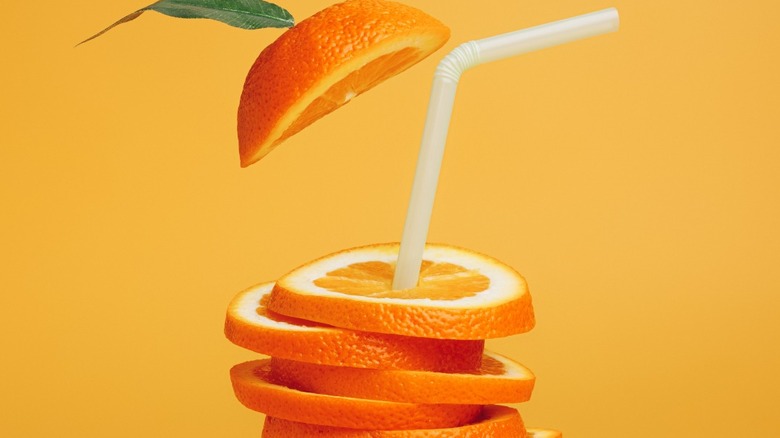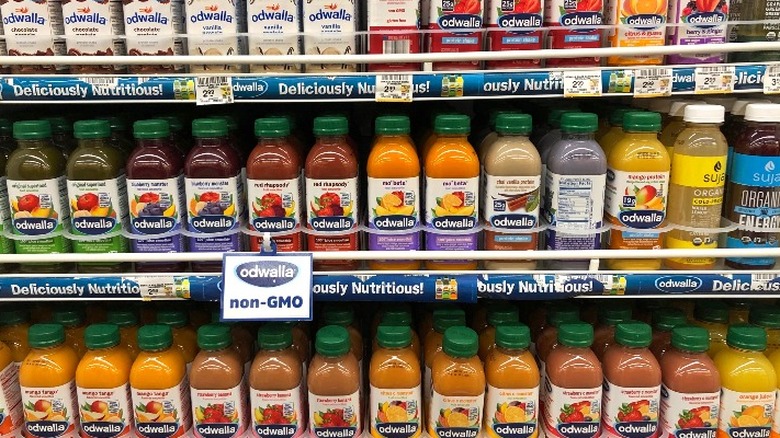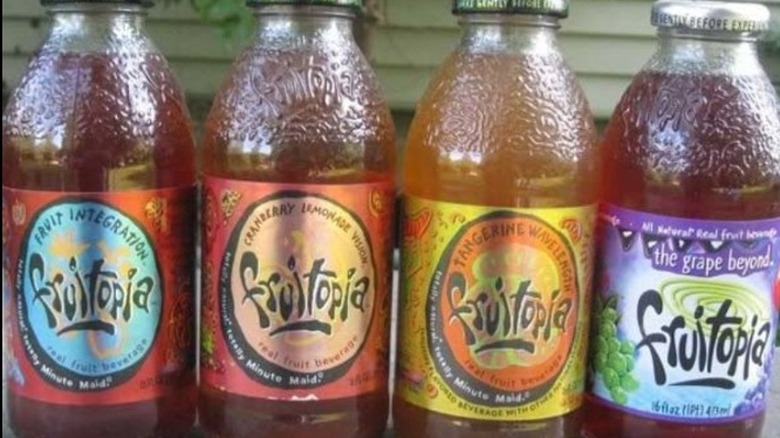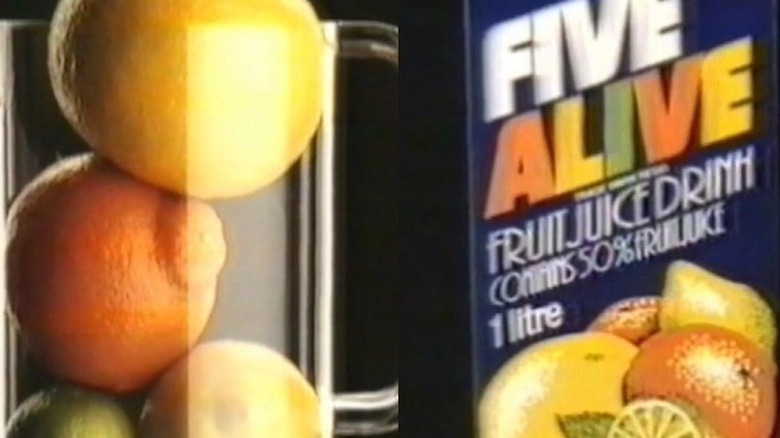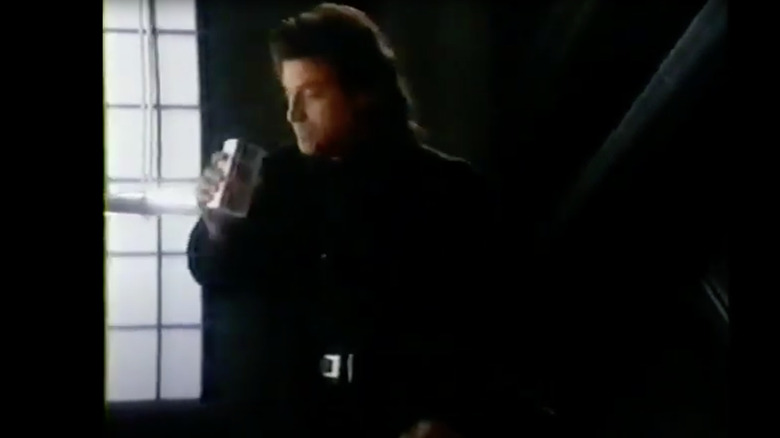Discontinued Orange Juice Brands You Can't Buy Anymore
Brand loyalty in the food industry is often rooted in familiarity and nostalgia, and orange juice is no exception. Whether you like OJ that's pulp-filled, pulp-free, fresh-squeezed, or from concentrate, there's a good chance you gravitate toward a specific brand and buy it over and over again. And when you drink orange juice every day, your brand loyalty may go even further.
Over the years, several brands of orange juice have risen in popularity only to be discontinued, leaving their consumers high and dry and longing for their favorite citrusy beverage. Imagine a world without orange juice, where mimosas were just glasses of champagne, and breakfast lacked a signature beverage. Today, orange juice brands seem to be a dime a dozen, but the day your favorite variety no longer appears in stores may seem like a day of mourning.
If you're wondering what happened to your favorite childhood OJ, look no further. The following brands were once beloved by consumers but no longer exist today.
Odwalla Orange Juice
Odwalla Orange juice got the ax from its parent company Coca-Cola in 2020, according to Food Navigator. Full Sail IP Partners, an investment firm, purchased Odwalla for an undisclosed amount with the intention of revitalizing the brand after Coca-Cola discontinued it a year prior when it failed to generate enough sales. You'll likely never drink Odwalla again, mainly because of claims the juice was too high in sugar.
Odwalla also carried Smoothie Refreshers, protein shakes, and food bars. The company delivered its products to various retail locations nationally via a herd of 230 trucks, a distribution that the soda giant also dissolved, CNN Business reported.
The company's 40-year operation was full of ups and downs. In 1996, Odwalla made more than $59 million, but, a year later, an E. coli outbreak linked to the brand led to a decline (per Ecosalon). The outbreak made 66 people ill and led to the death of a 16-month-old. The ordeal also forced the company to recall products amounting to $6.5 million. During the 48-hour recall, the company's stock fell by 40% and sales decreased by 90%.
Fruitopia
Hearken back to the 1990s. Grunge is in, your bedroom is wallpapered in Lisa Frank, your Beanie Baby collection is lit, and Fruitopia is everywhere. This popular, nostalgic juice popped onto the beverage scene in 1994 (per The New York Times). The Coca-Cola-owned company launched the psychedelic, groovy product to compete with popular brands like Snapple, which boasted natural ingredients and less sugar than sodas.
Fruitopia began with 10 flavors but expanded as the brand grew in popularity. McDonald's sold Fruitopia in stores, as did some vending machines. So, whatever happened to Fruitopia? It fell out of favor. Because of decreased sales, the juice giant had all but disappeared by 2003, except at McDonald's. Eventually, in the United States anyway, Fruitopia was completely ousted.
If you still want a taste the electro-pop juice drink, you'll have to head to Canada or Australia, where the iconic beverage can still be found grooving on store shelves.
Five Alive
The Coca-Cola Company hit its juice stride in 1981, when it released Five Alive. This drink, which was a concoction of orange, grapefruit, lemon, tangerine, and lime juices, had a decade long stint of popularity before it was discontinued in the United States. As were many of Coca-Cola's other products, Five Alive was marketed as a health drink. The thought that juice is inherently healthy was one of the incorrect things people believed about food 25 years ago.
Five Alive marketing hinged on the that it made its drinkers feel "lively." It came in a colorful carton and boasted a quirky personality.
Today, Five Alive can be found on Amazon, but it's not available in stores. Amazon reviews are filled with glee that the product is actually available at all. One reviewer wrote, "A little expensive ... but I needed to taste it again." Other reviewers complained that today's option tastes different. "Different from years ago. Seems more grapefruit? Add Vodka," one person advised as a solution. Might not be a bad idea, but only if you're of the legal age and drinking responsibly.
Boku
Who could forget the Boku fruit juice commercials? They featured Richard Lewis decked out in a juice box belt, bemoaning his lack of non-carbonated beverage options in a dark, edgy scene (per Vulture). It's the '90s encapsulated in a single advertisement.
The juice box brand hit store shelves in 1990. It arrived in flavors such as White Grape/Raspberry, Black Cherry/White Grape, and above all, Orange/Peach. The ad campaign for Boku targeted adults, a seemingly untapped juice box demographic. A commenter on a Reddit thread about Boku wrote, "I had it in my school lunch once or twice, which tells you that the ad campaign didn't do its job. I remember it tasting overly complex, like it was for adults and not kids, so at least product development did its job."
The brand generated $14 million in profits between 1990 and 1993, during which time Lewis starred in seven different commercials. By 1993, though, the sales stalled because of the rising popularity of others, such as Minute Maid.
